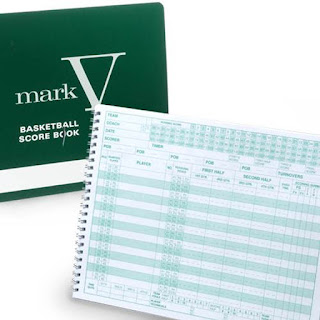Mastering The Game - The Ultimate Guide To Basketball Scorebooks
The Foundation of Basketball Record-Keeping1. Evolution of Scorekeeping
Understanding the evolution of scorekeeping in basketball provides insight into the significance of scorebooks. From the early days of the sport to the modern era, scorebooks have been a consistent and vital part of recording game statistics and outcomes.
2. The Importance of Accuracy
In a game where every basket can turn the tide, accuracy in scorekeeping is paramount. Basketball scorebooks offer a structured and organized way to record not only points but also player statistics, fouls, timeouts, and other essential elements that contribute to a comprehensive game analysis.
Anatomy of a Basketball Scorebook
1. Score Sheet Layout
Scorebooks typically feature a standardized layout, with sections for recording player details, team rosters, and quarter-by-quarter scoring. Understanding the layout is crucial for efficient and accurate scorekeeping during a fast-paced game.
2. Player Statistics Tracking
Beyond the final score, scorebooks allow for the detailed tracking of individual player statistics. Points scored, rebounds, assists, steals, and other performance metrics contribute to a holistic assessment of player contributions.
3. Fouls and Timeouts Tracking
Scorebooks also include sections for recording fouls committed by players and timeouts taken by teams. This information is valuable for coaches strategizing during the game and for post-game analysis.
How to Use a Basketball Scorebook Effectively
1. Pre-Game Preparation
Proper pre-game preparation involves filling in team rosters, ensuring accurate player details, and familiarizing oneself with the scorebook layout. This sets the foundation for smooth scorekeeping during the game.
2. Real-Time Scorekeeping Techniques
During the game, effective scorekeeping requires quick and accurate data entry. Techniques such as shorthand notation, color-coding, and using symbols for common actions streamline the process and reduce the risk of errors.
3. Collaboration with Officials and Statisticians
Scorekeepers often collaborate with referees and statisticians to ensure alignment in recorded data. Clear communication and understanding of rules contribute to accurate and fair scorekeeping.
Digital Scorekeeping vs. Traditional Scorebooks
1. The Rise of Digital Scorekeeping Apps
With technological advancements, digital scorekeeping apps have gained popularity. These apps offer features like real-time updates, automatic calculations, and enhanced data analysis. However, traditional scorebooks maintain their charm and are preferred by many for their simplicity and tangible nature.
2. Choosing the Right Method for Your Team
The choice between digital and traditional scorekeeping depends on the preferences of the team, the level of technology adoption, and individual comfort. Exploring the pros and cons of each method helps in making an informed decision that aligns with the team's needs.
Scorebook as a Coaching Tool
1. Post-Game Analysis and Strategy Development
Scorebooks serve as invaluable tools for post-game analysis. Coaches can review player performance, identify trends, and strategize for future games based on the data recorded in the scorebook.
2. Player Development Tracking
For player development, tracking progress over multiple games is crucial. Scorebooks help coaches identify areas for improvement, set goals, and tailor training programs to enhance individual and team performance.
Common Mistakes in Scorekeeping and How to Avoid Them
1. Misinterpretation of Rules
Understanding the rules of the game is fundamental to accurate scorekeeping. Common mistakes often arise from misinterpretations, so a thorough knowledge of basketball rules is essential.
2. Delay in Recording
In the fast-paced nature of basketball, delays in recording actions can lead to inaccuracies. Scorekeepers should develop the skill of recording data swiftly without compromising accuracy.
3. Failure to Reconcile with Officials
Regular communication with referees and statisticians helps prevent discrepancies in recorded data. Scorekeepers should proactively seek clarification on any uncertainties during the game.
A Look at Iconic Moments Recorded in Scorebooks
1. Historical Game-Changing Plays
Scorebooks often bear witness to iconic moments in basketball history. From buzzer-beaters to record-breaking performances, these moments are etched in the pages of scorebooks, creating a tangible connection to the sport's rich history.
2. Personal Milestones and Achievements
Individual achievements, such as a player reaching a thousand-point milestone or a coach achieving a significant win-loss record, are meticulously recorded in scorebooks, adding a personal touch to the historical narrative.
The basketball scorebook is not just a record-keeping tool; it's a chronicle of the sport's journey, capturing the highs, lows, and everything in between. As technology continues to influence sports, the traditional charm of manually recording the game remains a cherished practice. Whether you opt for the tangible feel of a scorebook or embrace the convenience of digital apps, the essence of scorekeeping lies in its role as a vital cog in the machinery of basketball. As players dribble, shoot, and score, the basketball scorebook stands as a silent witness, preserving the essence of the game for generations to come.



Comments
Post a Comment